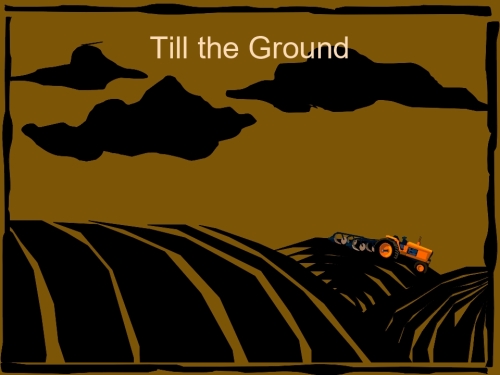
Once you have your field, the next step in preparing for the harvest is to till, or cultivate, the soil. This means preparing the soil for planting, which includes both plowing to break up the soil and fertilizing to add nutrients. Both of these help the seeds you subsequently plant to grow.
In our political field, trust – a respect and belief in the integrity, good intentions, and capabilities of others – is the soil that helps us grow and flourish as a society. The trends discussed in our last post have depleted our communal trust. Using the rubric of “trust taxes” and “trust dividends” described in Stephen Covey’s “Speed of Trust“, these trends have resulted in a destructive tax on the citizenry. This is evidenced through the growing number of citizens who view those not of their own political party as “the enemy”, the excessive defensive posturing and legal positioning by our political parties, and the general level of venom used in discussing differences of interest or information. All of these factors suggest a “trust tax” of 60% or more. This is a very high burden.
So how might we use dialogue to remediate some of the damage that has been done? Below are three actions that can help break up the hard crust of fear and anger that has formed, followed by two that can help prepare the ground for new growth.
- Invite. Invite others into dialogue. Simply choosing to use dialogue rather than debate – to move beyond the right/wrong, win/lose framing used in debate and actually explore the complexities of intersecting issues — is a step towards building trust. By choosing dialogue you are moving from an “Us” v. “You” competitive dynamic into a more inclusive “we are in this together and will be stronger together” partnership and problem solving mode. You might begin by acknowledging differences in values or interests while also exploring similarities, by exploring the different questions being asked, or by comparing and evaluating the different sources of information that are being used. An invitation can be as simple as asking questions like “How would we like it to be? Why?” Although you can introduce dialogue in everyday conversation, there are also many resources and organized efforts you can connect to and invite others to join. Two current efforts include the Kettering Foundation’s annual “A Public Voice” collaboration and the Better Angels “One America” bus tour.
- Align. If you are going to invite others into dialogue, once you are there you need to act like you mean it. The communication patterns that promote dialogue are the opposite of competing factions spitting “trigger words” at each other or ridiculing, rather than engaging with, other points of view. No one likes to be attacked, dismissed, or shamed. If you are going to sustain a dialogue, you will need to act in ways that show interest in, and care and concern for, the others in dialogue. This means aligning your comments with a focus on the relationship, not just the issue being discussed. You can also think about how to align your narratives and questions with stories of wisdom and the common good.
- Listen: Often we ‘listen’ simply to find the gap in the conversation in which we might insert our own views, or to harvest fragments of statements to use in our rejoinder. This is not what we mean by “Listen”. Instead we mean listening in ways that attend to the speaker. This includes reflecting back an understanding of the speaker’s emotions and concerns, and inviting further thoughts on what might help the speaker move forward. This kind of reflective listening calms emotions and enhances the speaker’s ability to process new information. It also strengthens relationships and builds trust by demonstrating respect for the speaker’s presence in the dialogue.
- Educate. John Dewey once said, “Democracy must be reborn in every generation and education is its midwife.” Oliver Wendell Holmes observed that “The mind, once expanded to the dimensions of larger ideas, never returns to its original size.” As the last election showed, many citizens lack an understanding of how their government actually works, use very different sources of information, are unsure of their own ability to influence the decisions that are made, and might benefit from additional skills in the areas of communication and critical thinking. Dialogue can help in all of these areas. Note that in dialogue, education occurs through asking open-ended questions, sharing resources and experiences, and inviting reflection, not through lecturing or proselytizing.
- Commit. Studies in different fields demonstrate that taking personal responsibility for one’s views and actions improves how information is processed, shared and evaluated. It also builds trust. This kind of commitment and willingness to be accountable for what one says and does is aligned with sincerity. It is the opposite of the “bullshit” discussed in the last post. Taking responsibility for what you think and say, admitting what you don’t know, and inviting others to do the same, is the essence of effective dialogue.
